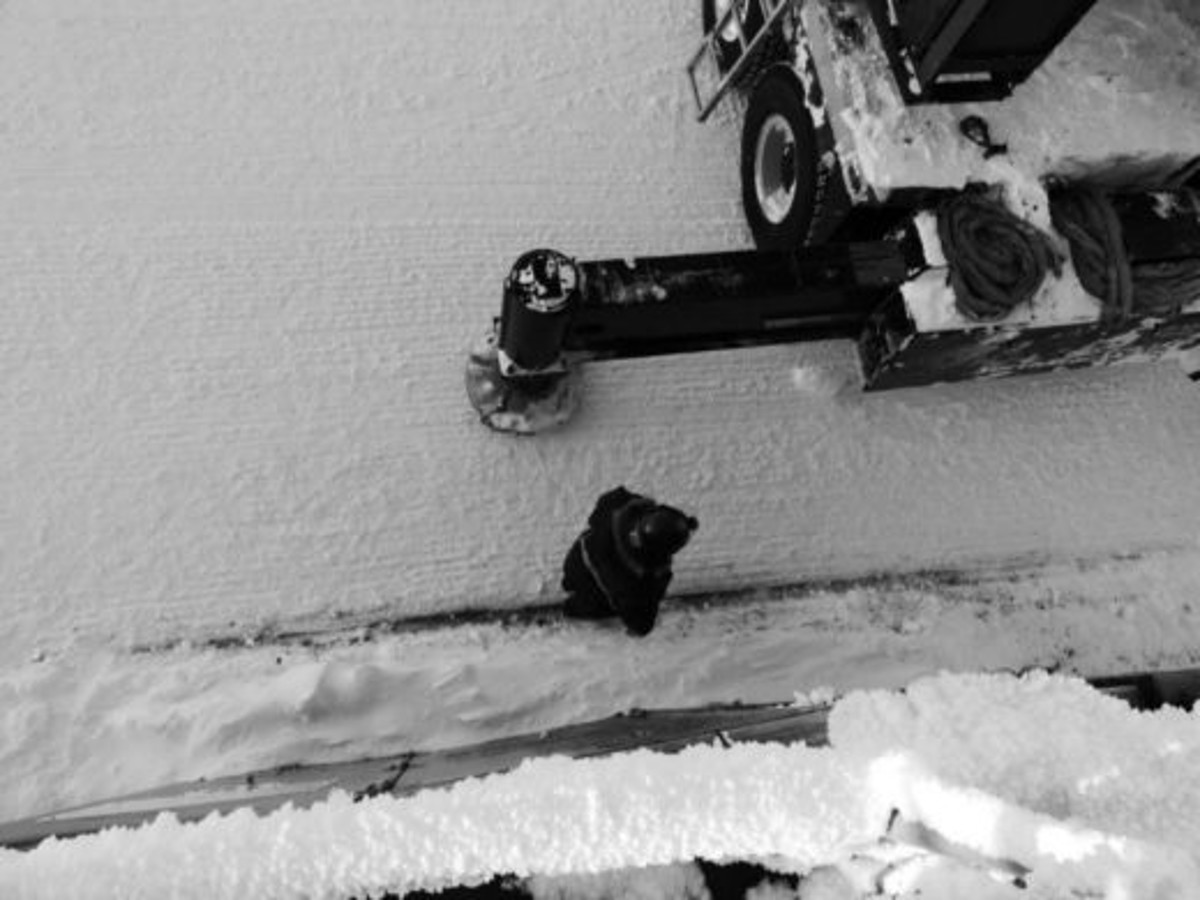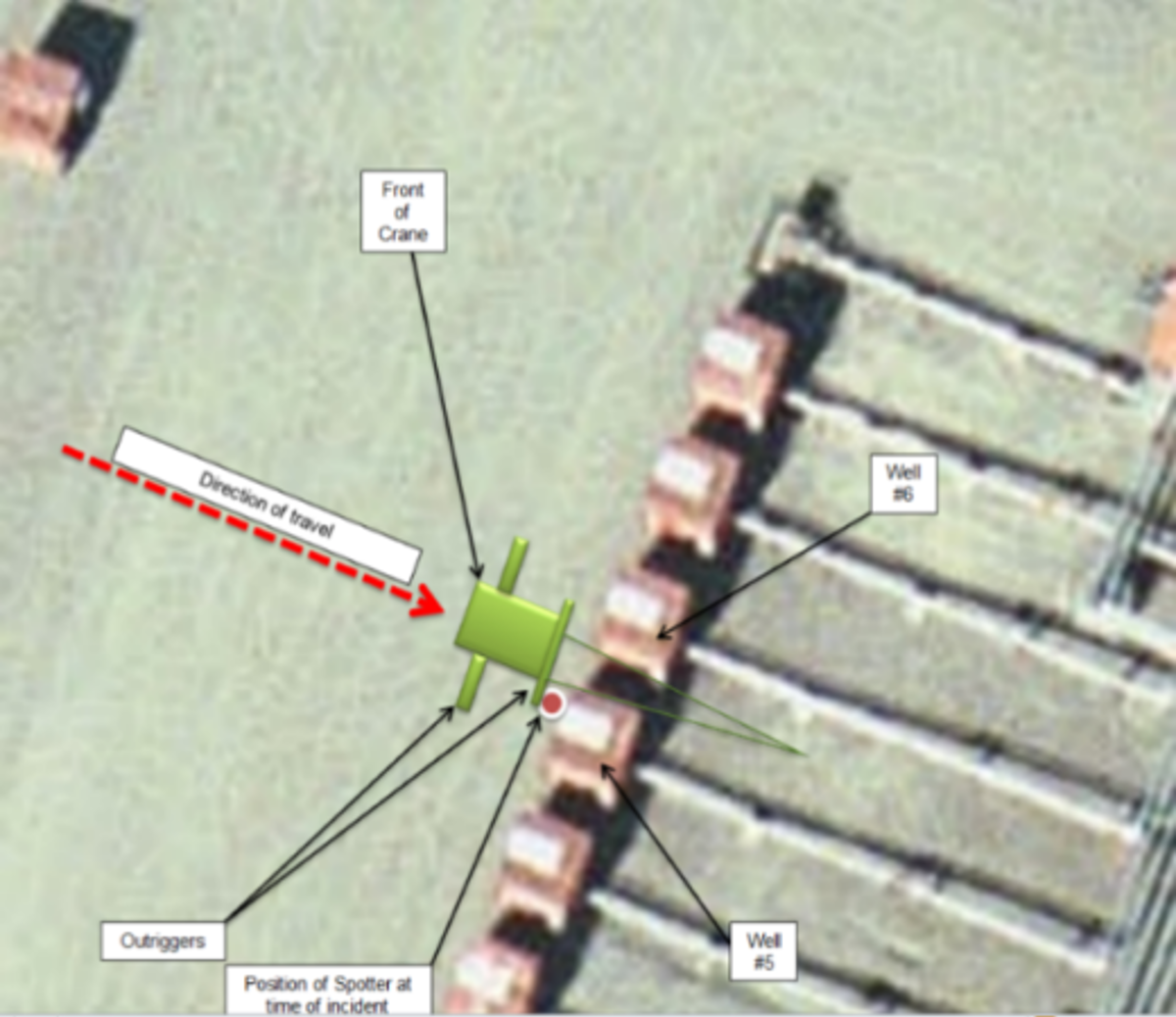Worker trapped and injured by reversing vehicle
- Safety Flash
- Published on 1 September 2017
- Generated on 15 January 2026
- IMCA SF 22/17
- 2 minute read
Jump to:
An IOGP safety alert recounts how, at a land-based seismic survey camp, a worker was trapped and injured when a reversing vehicle did not stop.
What happened?
Someone was working as a spotter helping a crane operator reverse a mobile crane into position.
As the crane reversed to approximately 1.5 m from the desired position, the spotter reached for his radio to give the STOP command, but lost his balance in snowy conditions.
While he regained his balance, the crane continued to reverse. As a result, the spotter was caught between the outrigger and the well house, causing an injury to his right wrist.

Aerial view of spotter and crane position

Aerial/plan view of scene of incident
What went wrong? What were the causes?
- The spotter lost his balance placing him in the line of fire.
- The crane operator continued to reverse after losing visual contact with the spotter. The spotter and the crane operator had previously agreed that if visual contact was lost that they would rely on verbal communication but did not agree that the verbal communication would be constant.
- This method of positioning the crane was considered normal by the two employees.
- While moving, the crane outrigger was left extended to prevent potential hydraulic oil leaks.
- The pre-task discussion had not identified these hazards.
What lessons were learnt? What actions were taken?
- Users of mobile equipment or vehicles (cranes, fork lift trucks etc.) should establish clear communication protocols before starting work.
- Persons on the ground or on deck near moving vehicles should never allow themselves to be “in the line of fire”.
- When operating mobile equipment or vehicles, if visual or verbal contact is lost with people nearby on the ground, STOP immediately until contact is re-established and safe operation can continue.
In summary, IMCA notes that this was a wholly avoidable injury for which one causal factor was lack of communication, and as such it is of interest to IMCA members in the marine or dockside context. The IOGP Safety Alert can be found on the IOGP website.
Related safety flashes
-
IMCA SF 11/16
29 April 2016
IMCA Safety Flashes summarise key safety matters and incidents, allowing lessons to be more easily learnt for the benefit of the entire offshore industry.
The effectiveness of the IMCA Safety Flash system depends on the industry sharing information and so avoiding repeat incidents. Incidents are classified according to IOGP's Life Saving Rules.
All information is anonymised or sanitised, as appropriate, and warnings for graphic content included where possible.
IMCA makes every effort to ensure both the accuracy and reliability of the information shared, but is not be liable for any guidance and/or recommendation and/or statement herein contained.
The information contained in this document does not fulfil or replace any individual's or Member's legal, regulatory or other duties or obligations in respect of their operations. Individuals and Members remain solely responsible for the safe, lawful and proper conduct of their operations.
Share your safety incidents with IMCA online. Sign-up to receive Safety Flashes straight to your email.